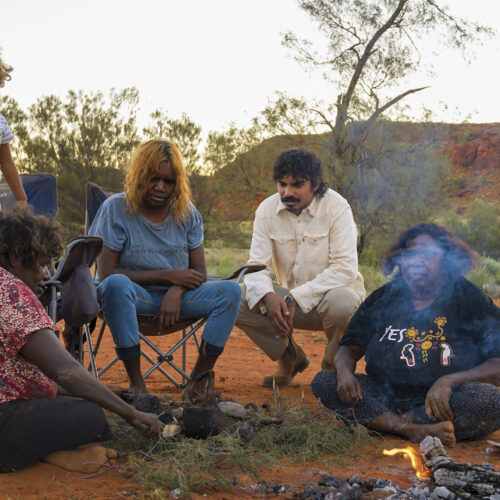Weather versus climate
2015-07-16T02:36:56+10:00
Current cold weather has social media in a frenzy, but JUSTIN RUSSELL says, don't believe the hype - it's winter after all.
How are you coping with the so-called Antarctic Vortex? I’m guessing most of you will answer, “just fine”. The mainstream media likes to hype otherwise normal weather events into raging monsters intent on wiping humans from the face of the earth, but the reality is much more benign. It’s winter. The bottom half of Australia gets cold. In some places it even snows. There’s nothing unusual about this, and while the force of this latest wintry blast has been the strongest for a few years, it’s certainly not exceptional to see experience a cold spell in the middle of July.
This isn’t to say that the global warming deniers aren’t having a field day on social media. In some people’s minds, climate change becomes a myth and a hoax when snow settles on the ground in areas where it rarely settles. The other day on Facebook, someone posted a photo of snow falling Queensland’s Parliament House in 1927, with the caption: “So Brisbane has had cold weather previously in history. Explain that, Climate Change preachers.”.
I’m not a preacher, but okay, I’ll take a stab at explaining it. Weather is not climate. Simple. Weather is short term, chaotic, determined by the seasons, the tilt of the earth’s axis and it varies from year to year. By contrast, climate reflects long term trends and, notwithstanding something catastrophic like an asteroid strike or massive volcanic eruption, it changes very gradually over many years.
A colder than average July in 2015 doesn’t necessarily mean that July 2016 will be equally cold. Compare this year to July 2014 – the temperature for that month was 0.29C warmer than the long term mean. What’s likely to happen next year? Your guess is as just as reliable as the best guess from the CEO of the Bureau of Meteorology Dr Rob Vertessy. Dr Vertessy will tell you that weather is variable.
Long term trends in the earth’s climate, however, are unequivocal. Multiple sources of evidence show that average global temperatures (land and ocean combined) increased by 0.85C between 1880 and 2012. In comparison to the yearly fluctuations of weather, a one degree rise in average temperatures doesn’t sound like much, but from a climate perspective it means that we’re witness to catastrophes such as melting glaciers and permanent inundation of low lying settlements.
The physicist Nil Degrasse Tyson beautifully explained the difference between weather and climate in a 2014 segment on the US science show COSMOS.





